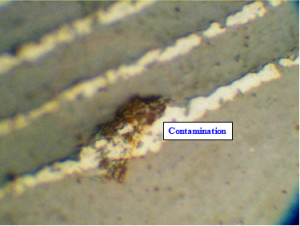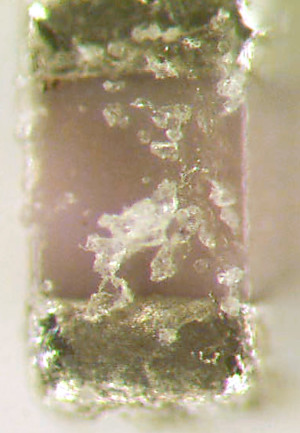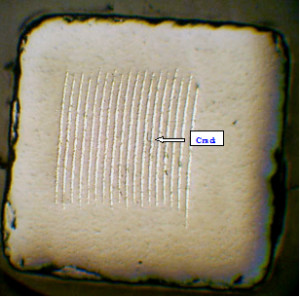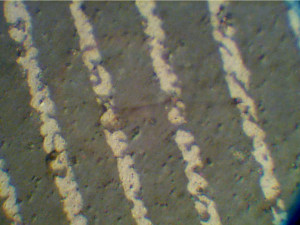220 Picofarad AVX Capacitor
Gideon Analytical Laboratories received four 220 picofarad AVX capacitors for failure analysis. There are a variety of capacitors, including ceramic, aluminum, film, and tantalum, but all serve the same purpose, which is to store electrical charge. They are passive electrical components with at least two electrical conductors separated by an insulator (dielectric). The four220 picofarad AVX capacitors were giving low resistance readings.
Failure analysis ensued. The four 220 picofarad AVX capacitors were inspected for mechanical cracks, which would propagate upon voltage; no cracks were found on the external ceramic. The capacitors were measured and tested on a curve tracer since they had low resistance, otherwise, an IR meter would be used. The current was gradually increased to the point where dendrites would burn out. The resistance was measured again. No change occurred. The capacitors were baked and then retested again; no appreciable change occurred in resistance measurements. These test results indicate there was most likely an internal problem with the capacitor.
The four 220 picofarad AVX capacitors were potted and cross-sectioned. Three of the four capacitors had cracks between the parallel laminates. These cracks were extremely small. There was also contamination in the electrode material, and there were voids and cracks between the plates. Gideon Analytical Laboratories determined that the cause of the failures was a leakage path between adjacent plates.
Gideon Analytical Laboratories has the right equipment, expertise, and experience to identify the causes of failures in a variety of electrical components. For over the past two decades, Gideon Analytical Laboratories has helped dozens of electronics companies solve their problems and help them make sure their products are reliable.

Contamination in the dielectric

Cap with polyurethane coating

Crack between the parallel laminate

Cracks across adjacent plates